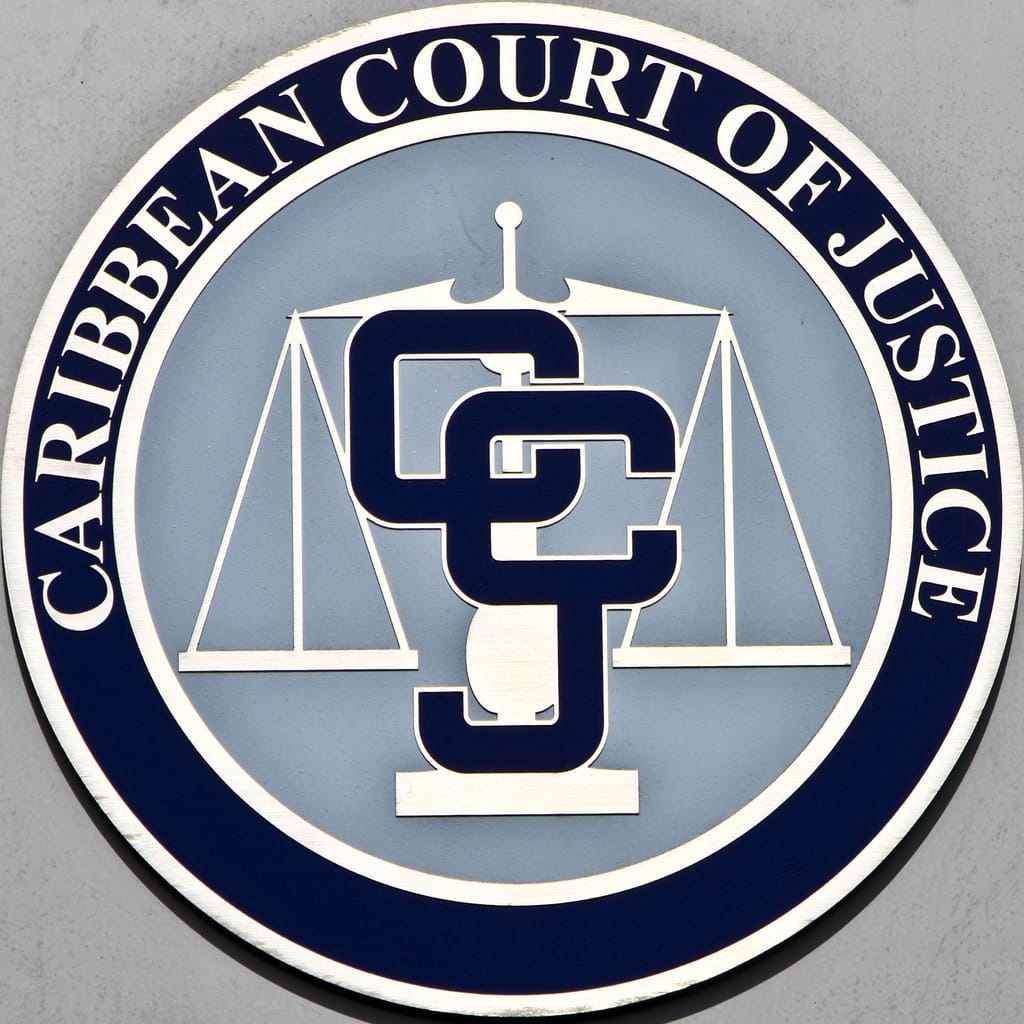
The Trinidad-based Caribbean Court of Justice (CCJ) Monday dismissed an application four Grenadian nationals who had accused the Barbados government of violating their right to freedom of movement under the Revised Treaty of Chaguaramas that governs the regional integration movement, CARICOM.
The four- Tamika Gilbert, Lynnel Gilbert, Royston Gilbert, Glennor Gilbert – had applied for special leave in the Original Jurisdiction.
 Their attorney Ruggles Ferguson had said that the Gilbert family was seeking legal redress for being subjected to a strip search over a false accusation of stealing a mobile phone.
Their attorney Ruggles Ferguson had said that the Gilbert family was seeking legal redress for being subjected to a strip search over a false accusation of stealing a mobile phone.
On October 11, 2016, the family of four travelled to Barbados to renew their visa at the United States Embassy and thereafter decided to go shopping in Bridgetown, where a store owner accused Tamika Gilbert of stealing her mobile phone.
The situation escalated further after the store owner refused the family’s offer to have their bags searched and resulted in the intervention of the Royal Barbados Police Force (RBPF). The family was said to be detained, and it is alleged that they were subjected to strip searches among other humiliating treatment, including one of the family members having to use the toilet with the door open while an officer stood guard.
Ferguson said this matter fell under the Revised Treaty of Chaguaramas which deals with the free movement of people and goods across CARICOM.
But he did indicate that unlike the Shanique Myrie case — involving the Jamaican woman who successfully sued the State of Barbados after being stripped searched, denied entry and deported by Barbados immigration authorities — the issue before the CCJ is the infringement of the Gilbert family’s right to move freely within Barbados.
Tamika and Lynnel claimed that they were subjected to degrading treatment by the police and Tamika alleged that she was made to remove a portion of her written statement recounting the degrading treatment before the police would allow the family to leave.
The applicants had therefore claimed that Barbados had violated their right to move freely within the island and to depart Barbados without unnecessary harassment or impediment.
Barbados denied their claim and opposed the grant of leave, arguing that the applicants had not fulfilled the requirements of the Revised Treaty of Chaguaramas (RTC) needed to commence legal action.
The CCJ pointed out that the applicants were taken into police custody for the purpose of police investigations and that freedom of movement did not immunize CARICOM nationals from the operation of law enforcement agencies in the receiving State.
“The Court is therefore of the view that the Applicants’ reliance on Article 45 and the 2007 Conference Decision in the circumstances of this case is misconceived. They have failed to make out an arguable case that they were prejudiced in respect of the enjoyment of their right to free movement within the State of Barbados and to depart Barbados without impediment. They have therefore not satisfied Article 222 (b) and so special leave cannot be granted,” the CCJ ruled.
In addition, the CCJ held that the applicants would have had to set up an arguable case of discrimination based on nationality only, prohibited by Article 7 of the Revised Treaty, in order to be granted special leave to bring their claim against Barbados.
The Trinidad-based court, established in 2001 to replace the London-based Privy Council as the region’s final court, ruled that the family failed to do this.
The CCJ, which also acts as an international tribunal interpreting the RTC, dismissed their application, adding accordingly, each party should bear its own costs.
Advertise with the mоѕt vіѕіtеd nеwѕ ѕіtе іn Antigua!
We offer fully customizable and flexible digital marketing packages.
Contact us at [email protected]
















